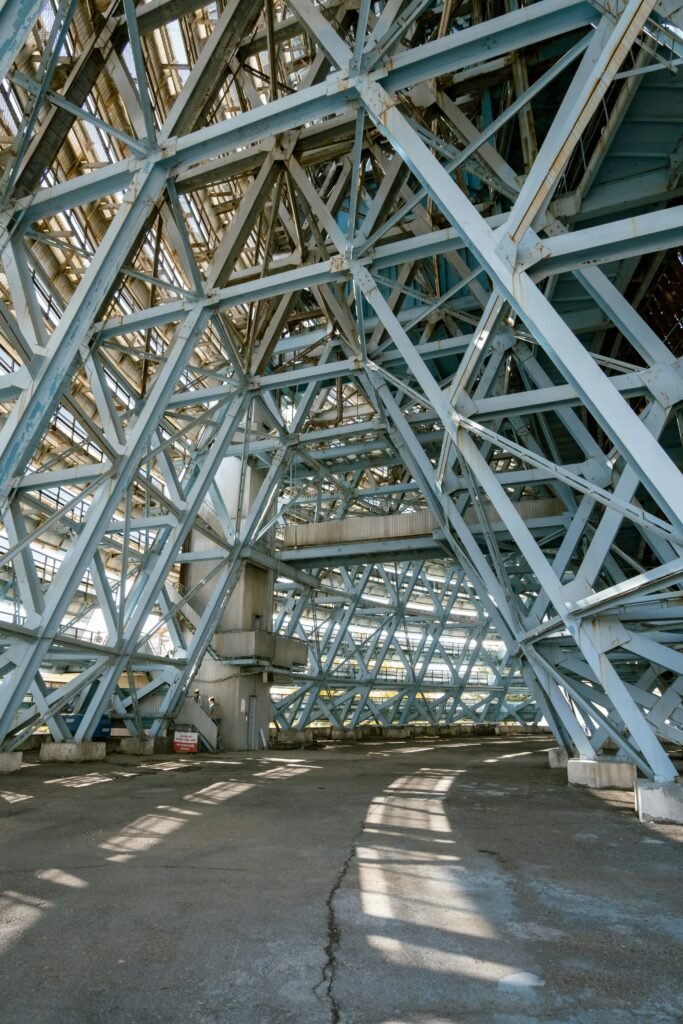
The modern construction industry relies on materials that combine resilience, precision, and adaptability — and structural steel sits at the forefront of that need. From commercial developments and infrastructure projects to residential architecture, steel fabrication provides the backbone of strong, safe, and sustainable structures. Working with a structural steel fabrication Sunshine Coast specialist ensures that every component is crafted with accuracy, durability, and long-term performance in mind.
What Is Structural Steel Fabrication?
Structural steel fabrication involves transforming raw steel sections into customized frameworks and components used in construction. This process blends advanced engineering, skilled craftsmanship, and modern technology to produce steel elements that meet exact design and safety standards.
The fabrication process generally includes:
- Design and Drafting: Engineers and designers use CAD software to create precise plans that comply with building codes.
- Cutting and Shaping: Steel is cut and bent using high-precision equipment such as plasma or laser cutters.
- Welding and Assembly: Components are securely joined using specialized welding techniques.
- Finishing: To enhance corrosion resistance, steel is often coated, galvanized, or painted before installation.
Each stage demands technical expertise and strict quality control to ensure the final product meets the project’s structural requirements.
Benefits of Structural Steel
Structural steel is a cornerstone material in construction because of its balance of strength, efficiency, and versatility. Some of its key advantages include:
- Exceptional Strength: Steel offers a superior strength-to-weight ratio, enabling it to support heavy loads with minimal bulk.
- Design Flexibility: Its malleability allows architects to create modern, complex designs that would be difficult with other materials.
- Cost Efficiency: While the initial investment may be higher than timber, steel’s longevity and low maintenance make it a cost-effective choice over time.
- Sustainability: Steel is 100% recyclable and supports environmentally responsible building practices.
- Faster Construction: Prefabricated steel components streamline on-site assembly, reducing labor and construction time.
- Durability: Steel resists pests, rot, and fire, making it ideal for Australia’s varied climate conditions.
These benefits make structural steel a practical solution for both large-scale developments and smaller residential projects.
Common Applications
Steel fabrication supports a diverse range of projects across industries, including:
- Commercial Buildings: Office complexes, retail centers, and warehouses often rely on steel frameworks for strength and open layouts.
- Residential Construction: Steel is increasingly used in modern homes for carports, staircases, and architectural detailing.
- Infrastructure: Bridges, overpasses, and transport facilities depend on steel for load-bearing capacity and reliability.
- Industrial Sites: Factories and processing plants use steel structures for mezzanine levels and for supporting heavy machinery.
- Architectural Features: Sculptural facades and decorative frameworks showcase steel’s visual appeal and strength.
Its combination of aesthetic potential and structural performance makes it indispensable across multiple sectors.
Ensuring Quality and Precision
One defining characteristic of high-quality steel fabrication is precision. Skilled fabricators follow detailed engineering drawings and industry standards, ensuring each piece fits perfectly into the overall structure. Quality control measures — including inspections, weld testing, and coating assessments — maintain both safety and performance integrity.
Experienced teams often use CNC machinery, digital modeling, and automated cutting systems to improve efficiency and consistency, reducing human error and waste.
How to Choose the Right Fabricator
Selecting a qualified steel fabricator is crucial for project success. Key considerations include:
- Experience: Choose a company with a proven track record in your type of project, whether residential, commercial, or industrial.
- Certifications: Verify compliance with Australian Standards, such as AS/NZS 1554 for welding.
- Technology: Look for modern facilities equipped with advanced machinery and digital fabrication tools.
- Customization: The best fabricators collaborate closely with architects and engineers to deliver tailored solutions.
- Reputation: Read testimonials or review completed projects to assess reliability and quality.
- After-Sales Support: Reliable providers stand behind their work with maintenance and follow-up services.
A skilled local fabricator offers not only technical excellence but also guidance on cost-effective, sustainable design choices.
The Future of Steel Fabrication
The industry continues to evolve with digital modeling, automation, and environmentally friendly practices. On the Sunshine Coast, sustainable construction and modern architecture are driving innovations in fabrication methods and materials. Expect to see greater integration of lightweight composites, energy-efficient coatings, and smart technology in future builds.
Final Thoughts
Structural steel fabrication remains a pillar of modern construction — strong, versatile, and built for longevity. Partnering with a skilled local fabricator ensures your project benefits from technical precision, superior materials, and efficient delivery. Whether constructing a commercial complex, enhancing an industrial facility, or designing a custom residential feature, professional steel fabrication delivers unmatched strength and value. With experienced specialists guiding your project, you can build with confidence — knowing your structure is engineered to endure and designed to impress.